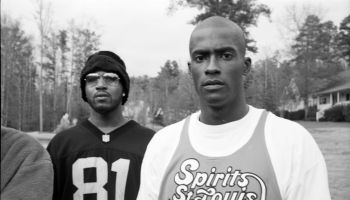VIA: CNN.com
In the summer of 1943, when Adolf Hitler’s armies marched unchecked across Europe, a pastor in a remote New England village decided to write a prayer.
“God grant me the serenity to accept the things I cannot change,” he began, “the courage to change the things I can and the wisdom to know the difference.”
It is now known as the Serenity Prayer. It’s been adopted by 12-step recovery programs and cited in numerous self-help books. Yet few people know who wrote it. His name is Reinhold Niebuhr, and he was a Protestant pastor in the mid-20th century whose words tended to unsettle people, not offer comfort.
Niebuhr is getting attention again because he has a fan in the Oval Office.
In a widely cited New York Times column, President Obama called Niebuhr his “favorite philosopher.” But how precisely has Niebuhr’s philosophy influenced Obama and his handling of everything from health care reform to fighting terrorists?
The answer may be seen by looking at Obama’s first year in office, several scholars, and a relative of Niebuhr’s, suggest.
Who was Niebuhr?
At first, there seems to be little resemblance between the cool, cerebral Obama and the pugnacious Niebuhr.
Niebuhr was a blunt critic of morally complacent Christians. He thought the church was full of idealists who believed that progress was inevitable and that love alone would ultimately conquer injustice, some Niebuhr scholars say.
“He said there was a difference between being a ‘fool for Christ’ and a plain damn fool,” says Richard Crouter, author of the upcoming book “Reinhold Niebuhr: On Politics, Religion and Christian Faith.”
Niebuhr lived during an age of global calamities. He was born in Missouri in 1892, the son of a German-born minister. He preached and taught theology during the Great Depression and World War II. He saw the suffering of workers at Henry Ford’s auto plant — lack of pensions, dismissals for sickness — when he became a pastor in Detroit, Michigan, Crouter says.
“The greed of capitalism and the business class was huge in his mind,” Crouter says. “It had to be combated.”
So would other forms of evil. Niebuhr wrote movingly about the power of nonviolence. But when Hitler rose to power in the 1930s, Niebuhr drew criticism from Christian pacifists and others for urging the U.S. to enter the war, says Jordan Copeland, an assistant professor of religion at La Salle University in Pennsylvania.
Niebuhr would attract more criticism after the war for supporting “containment,” the U.S. Cold War policy of using military, economic and diplomatic force to counter the influence of the Soviet Union, Copeland says.
“He criticized Christian idealists who thought force was never justified and who believed that the law of love was a simple solution to social and political problems,” Copeland said. “At times, power must be challenged by power.”
Niebuhr distilled his view of human nature in his monumental book, “Moral Man and Immoral Society.” The Rev. Martin Luther King Jr. cited the book in his “Letter from Birmingham City Jail.” Former President Carter is also an admirer of Niebuhr’s.
Read more here.














